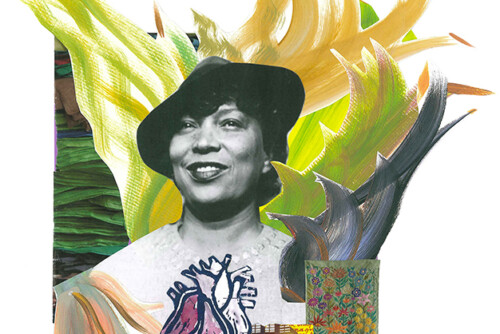Altruism and the Divine
In the discussion and description of what it is like to be a part of transnational surrogacy arrangements in this clinic, doctors, surrogates, and commissioning parents all described their interest and actions as at least partially if not primarily motivated by altruism. In the context of clinic staff, this discourse took the form of a general narrative of the clinic’s project of social work: rehabilitating women who take on surrogacy into more disciplined, self-sufficient and professionalized workers, and helping childless couples from around the world build their families. Intended parents also described the opportunity to help needy women working as surrogates as part of the benefit of hiring a surrogate in India rather than in their home countries. In the context of how surrogates describe their participation, carrying a child for a couple without children is described in empathetic and spiritual terms as an opportunity to provide something that is usually the domain of a godly gift.
Many of the surrogate mothers I spoke to, all of whom were Hindu or Christian, emphasized a feeling that they were doing something great, often in the religious language of being like a god, or being able to give a gift to an infertile couple that is a gift usually given only by god. 1 Most were usually quick to then include the doctors as part of this ability to provide, but the emphasis was on their own power to give. Those who spoke to this topic emphasized that this exalted aspect of their actions was much more important than the money aspect, and in fact was their primary motivation. At the same time, when I asked one former surrogate mother how she would feel if one of her daughters wanted to be a surrogate when she was older, her reply was immediate and negative: she explained that the whole reason she herself undertook a surrogacy was so that her children could become educated and wouldn’t have to do such things, and that she would not want her daughters to experience that pain. I have to assume that she meant a certain experience of pain, both physical and emotional, that exists in surrogacy but not in carrying and birthing one’s own child. Her comments also suggest that despite the narrative of the gift, which mediates the economic transactions within surrogacy by putting them in the realm of voluntary exchange and altruism, surrogacy is a type of work that is not desirable except when economically necessary.
The turn to the divine within these narratives can offer an alternative explanation of the meaning of surrogacy in a frame that is not limited to the medical discourse of the body and biogenetic parenthood. In the context of the clinic, it marks both a woman’s powerful role as a surrogate, and signifies the value of the outcome of producing a child for a childless couple in non-monetary terms. For the reader and scholar who does not originate from within the communities where the women working as surrogates reside, this mode of understanding and relating surrogacy could suggest a way to approach the significance of this act in terms beyond those of labor and economics. It could also provide a way to bridge potential gaps in women’s understanding of the clinical explanation of surrogacy as a reproductive technology, which the doctors describe again and again to surrogates in a very basic way as a mode of recruitment. This includes the explanation of how in vitro fertilization works, where an infant is conceived without sexual relations, ultimately leading to the birth of a child who “does not look like you.” The discourse of the divine aspects of surrogacy suggests alternate ways that surrogacy might be imagined and have value that don’t translate to the genetic definition of a biological parent, and don’t necessarily circulate within the economic logic of surrogacy as technologically-mediated ‘women’s work’ in the global economy.
- The vast majority of surrogates describe themselves as Hindu, and though there have been some Christian surrogates, the clinic directors report that they have only had one or two Muslim women who inquired about the process of becoming a surrogate, and explained this by saying that they don’t often have Muslim women who are interested for reasons of spiritual beliefs about the integrity of the body. This can also be attributed to the fact that the clinic is located in an area with rather high Hindu-Muslim communal tensions, and the clinic directors are Hindu; their word of mouth recruiting strategy only reaches people who are already connected with the clinic or with past surrogates and as such would tend to be Hindu or Christian as well.[↑]



